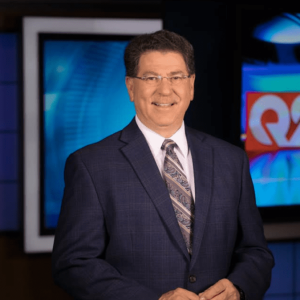BILLINGS - After a relative obscure existence for more than six decades, the Heights Water District - the small government entity that runs the Heights Water system - finds itself in the headlines.
From a $4 million overdue bill with the city of Billings, to revelations that the Water Board has never held an election, to new accusations that the board's policies and fees are stifling growth in the Heights.
"The more we ask and the more we talk with developers, investors and realtors, this frustration that the Heights Water District is impeding development in the Heights," said Jennifer Owen, chair of the Heights Task Force.
With two major transportation projects soon to bring new traffic into and out of the Heights, the task force is working to ensure the community is well positioned to attract new development and businesses.
"We've got the Billings Bypass coming in, the Inner Belt Loop coming in," said Owen. "We need to get this fixed now, so the reputation in the community is that the Heights is where things are happening."
Instead Owen alleges the Heights Water Board is standing in the way of progress, with exorbitant annexation and system development fees that can add hundreds of thousands of dollars to the cost of new projects, forcing developers to look elsewhere.
"I think they are good people who are trying to do their best, but there is just a genuine lack of transparency, openness and accountability," said Owen. "There is not public announcements, there's not recruitment, there is no desire to bring people in and ensure everything operates openly. That has to come to a stop."
One project engineer told MTN News when clients inquire about building or expanding in the Heights, he tells them to "run the other way."
Former Billing City Councilman Larry Brewster got so frustrated trying to deal with the Heights Water Board that now as a state lawmaker he's in the process of changing the law that governs special water and sewer districts. Montana has more than 400 such district statewide.
"I didn't want it to be just about the Heights Water District, but about everywhere," explained Brewster. "After I introduced the bill, I got calls from a lot of places in the state who said they were having the same kind of problems as we were in Billings."
Brewster's House Bill 255 passed the Montana House of Representatives last week on a final vote of 95-2. It is scheduled for it's first Senate hearing next Wednesday. During discussion of the bill, Brewster referred to the Heights Water District as the "poster child for disaster."
"We really need to work to make it affordable for people to invest in the Heights and put businesses there," said Brewster. "Because none of them are going to come if they look at a $300,000 bill, or a $200,000 bill just to get a water service, in a building that already had a water service."
Brewster's bill regulates how special district board meetings are to be conducted, in accordance with the Montana Open Meetings Law. It also adds time to the appeals process for ratepayers, and calls for cost sharing in cases that result in arbitration.
Meanwhile at the Heights Water District Office, Board President Wynn Pippin defends the district's business practices. She told MTN News that in her twenty years on the board, no one has ever come before the board to question its fees.
"Nobody came and said wow, we feel you're way out of line," said Pippin. "These people who say they have a huge amount of frustration have never talked to one of us, have never approached us, have never attended a meeting, have never sent an email."
As for complaints over a lack of transparency and compliance with the Open Meetings Law, Pippin again says it's the first she's heard of such complaints. As for accusations the board is anti-development, Pippin says that simply doesn't hold water.
"Business development involves a lot besides just water, so what is it besides water that is holding businesses back from developing?" asked Pippin. "They're saying it's all on water and we're saying show us, show us where we are the limiting factor. It's hard to be put in the corner and blamed for something, when no one will even sit down and talk to us about it."
One of the most astonishing facts is that the Heights Water Board has not held an election since it was established in 1958. That's about to change, however, as ballots will be mailed out next month to customers and property owners in the water district. Eight candidates, including three incumbents, are running for five seats on the board. Voters get to pick three.
Looking ahead to the May 4 election, Owen told MTN News she is hopeful voters will take an active role in making the Heights better for everyone.
"There is no need for the Heights Water District to not exist," said Owen. "What we need is a willing partner in creating the kind of community where we all want to live and thrive. We need a water district that's working in the interest of ratepayers, working to do what's right, leading through integrity and honesty."
As she contemplates the district's first election ever, Pippin, the board president, said she hopes those seeking positions on the board are doing so with Heights water customers in mind.
"We are here to serve the customers and we have no reason to not want to develop businesses or cooperate," Pippin said. "Our biggest responsibility is engineering and safety,"
The Heights Water District is the largest of its kind in Montana, with more than 5,800 service connections.




